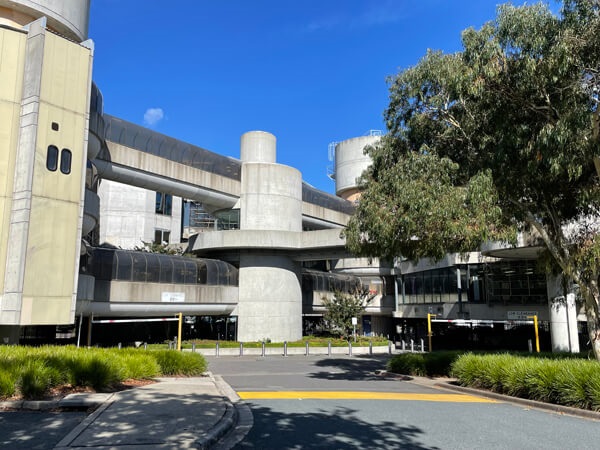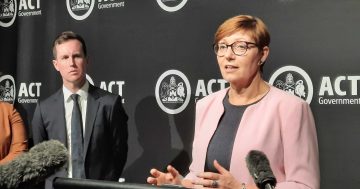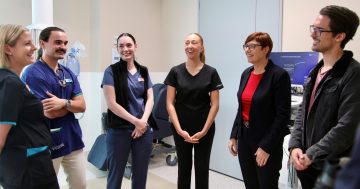
The CAMHS Southside service in the Callam Offices site. Photo: ACT Government.
ACT Auditor-General Michael Harris has found Canberra Health Services’ management of youth mental health services is ineffective, as demand for services continues to grow.
The report, presented to the Legislative Assembly, focused on the nine specialist, psychosocial and acute services delivered by Child and Adolescent Mental Health Services (CAMHS).
Within CHS, Mr Harris said CAMHS “is not effectively monitoring the performance of services for young people with moderate to severe mental illness”.
“Multiple performance indicators are in place, but these are not being systematically measured and reported,” said Mr Harris.
“Client surveys and independent evaluations are not conducted.
“Canberra’s increasing population, particularly in the north, is increasing demand for mental health services for young people.
“While the Territory’s long-term plans for health services acknowledge that young people’s mental health is a priority, they do not make any clear commitment to enhance services for young people with moderate to severe mental illness.”
Among the seven recommendations delivered to CHS and the ACT Health Directorate, Mr Harris said the ACT Mental Health Services Plan was a priority. He said this opportunity, already in development, would be able to address gaps in service provision and improve transition pathways for young people turning 18.
CAMHS Community Teams were approached on 1498 occasions to assist a young person with mental health concerns in 2022.
According to the report, under half of these young people were considered suitable for support from CAMHS. The average wait time was 30 days for the first appointment and then four months for the first appointment with a clinician.
That same year, just over a third of the 880 young people who presented to the CHS Emergency Department were actually admitted.
To address these concerns, CAMHS has been trialling a new triage and treatment procedure this year to reduce service waiting times. Since their adolescent unit (CAU) opened in mid-2023, there has been a 60 per cent reduction in the number of young people treated in adult mental health facilities.
CAMHS services operate under 20 different performance indicators and outcome measures as accredited under the National Safety and Quality Health Service Standards. However, in this arena, Mr Harris found significant monitoring issues.
While recent internal audits of their care and safety plans did find that most CHS mental health services for young people are falling “well short” of their performance targets, the report claims “there is a lack of information on the purpose of the indicators and inconsistent collection of data to measure performance and outcomes. No performance reports are provided to CHS or external stakeholders on CAMHS’ activities”.
Mr Harris reports that while CAMHS has recently consulted with previous patients through the Youth Coalition of the ACT, it does not routinely evaluate its services by conducting surveys of patients or carer experience.
The Auditor-General said the ACT Health Directorate should prioritise the development of the Mental Health Services Plan for the ACT and ensure that this plan addresses services for young people with moderate to severe mental illness, including those currently provided by CHS.
He added that CHS should review their policies and processes for transitioning clients who turn 18 years old from CAMHS to adult mental health services. He said this review must include services provided by third parties to ensure they’re fulfilling positive outcomes for young people.
Due to the projected and already increasing demand for youth mental health services, particularly in Canberra’s northern suburbs, the report calls on CHS to review the allocation of staffing resources across the CAMHS Community Teams.
Along with this, it asks CHS to review CAMHS’ performance indicators and implement the Your Experience of Service (YES) and Carer Experience Survey (CES) – so it can:
- Identify and confirm whether the indicators are required, current and useful for monitoring CAMHS performance
- Develop a resource that describes the performance indicators, their purpose and how they are to be collected and reported, and
- Determine the internal and external audiences for the performance information and produce relevant performance reports accordingly.
The report also recommends CHS develop a multi-year evaluation strategy for CAMHS, following the aforementioned objectives.











